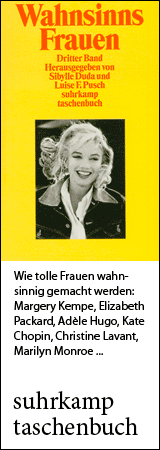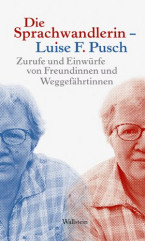
Born 25 November 1950 in Cloncurry, Australia
Australian Aborigine novelist and activist. Fighter for Aboriginal Sovereignty!
Biography
Alexis Wright, 74, an Australian Aborigine novelist and activist, is a truly exceptional voice for her own people and the oppressed everywhere. As a novelist she embodies a humanity, pathos, humour and complexity worthy of James Joyce. Her novels, while located in her own land, are a heartbreaking metaphor for settler colonialism, censorship, silencing and racism, so evocative of the current situation in Gaza. They also speak to climate catastrophe. Her most recent novel, Praiseworthy, at 736 pages, is “an impassioned environmental Ulysses of the Northern Territory…. Playful, formally innovative, multi-storied, allegorical, protean and dizzyingly exhilarating, it is long, lyrical and enraged – James Joyce crossed with Gabriel García Márquez, Jorge Luis Borges, Bruce Chatwin and Arundhati Roy” (Padel).
In 2024 she won the Stella Prize (for the second time), chosen after close study by students at the University of Edinburgh: “Praiseworthy stood out to our student readers for pushing the novel form in new directions and for depicting, with impeccable nuance and humour, the moral complexity of trying to make a life under conditions of governmental dispossession and slow violence.” The judges describe it as “a kaleidoscopic and brilliantly conceived novel that interweaves matters of climate and Indigenous justice in prose that accomplishes the most difficult of feats – being funny and simultaneously ferociously engaged with some of the most pressing ethical and political questions of our contemporary moment.”
Alexis Wright is a member of the Waanyi nation of the southern highlands of the Gulf of Carpentaria. A long-time land rights activist, her non-fiction work includes Take Power, an oral history of the Central Land Council, and Grog War (1997), which documents how Aboriginal elders and leaders of Tennant Creek worked together to achieve community-wide alcohol restrictions, looking at “The physical displacement and inward migration of Indigenous Australians since European arrival in 1788”.
Wright has had a distinguished career. She was Boisbouvier Chair in Australian Literature at the University of Melbourne, Distinguished Research Fellow at Western Sydney University, and the inaugural winner of the Creative Australia Award for Lifetime Achievement in Literature.
Wright says her new novel, Praiseworthy, is an imagined place: “It comes from deep within me about what I know, what I’ve experienced, and what I think about and worry about. In some ways, it’s a representation of Australia itself.” She questions how strong their Aboriginal sovereignty is given the many attempts made to erode it—-“the apocalyptic realities of two and a half centuries of continual invasion”. They fought for Aboriginal self-government in the Northern Territory over many years but this was totally ignored in the 1976 Land Rights Act. “People keep telling Aboriginal [people] that we must have hope,” she says, “but when you look back at our survival here, as the oldest living culture, I don’t think our people got through all those thousands of years by sitting around with hope. There is a very strong desire to survive and to take our culture into the future.” In 2007 they were insulted again by the Northern Territory Intervention, brought in under the guise of protecting children but, according to Amnesty International, reflecting a return to the paternalistic approach of the past and policies of ‘assimilation’.
Indigenous elder Rosalie Kunoth-Monks spoke out against the Intervention:
If this intervention was so good for us, why did you remove the Racial Discrimination Act? We are human beings, and we also have our own culture, which we’re not about to roll over and hand over … Now I want you to answer and tell these men, and these women and myself, why we are being punished by the Federal Government and by the Northern Territory Government … You gonna babysit us, you going to hand feed us? We’re capable people. We are capable of looking at future directions for ourselves … You heard it loud and clear … Future directions of the Australian Aboriginal persons will come at our pace. We’ll own that journey. We’ll not be dictated to from edicts coming down like bullets from Canberra. Our authority has been usurped.
Amnesty International describes the Intervention:
https://www.amnesty.org/en/wp-content/uploads/2021/05/SEC010032010ENGLISH.pdf
Rising above the oppression, Wright’s novel, Praiseworthy, is in part a story about donkeys. This evokes an inescapable link with Gaza – Gaza being entirely dependent on the donkey for transport, but where even donkeys are targeted by Israeli snipers. Praiseworthy is also an image of imprisoned communities like Gaza and detention camps everywhere, where there is no escape from the descending haze, and no government intervention to rescue them:
The haze swirled into s-bends, and made the whole sunrise madder. It whorled, reigned in, and tightened into a frenzied dance over Praiseworthy…The humidity grew debilitatingly depressing because Praiseworthy people just felt plain overwhelmed by being surrounded in a continual march of inadequacies. (p. 83)
The novel portrays families torn apart seeking ways to survive, confused by the pressure to ‘assimilate’ and the ‘tumbledown life of poverty’. Fathers humiliated, mothers driven to madness, children escaping, each with their own dreams and disappointments. Paranoia and isolation take hold. Alexis Wright’s sensitivity to the cruelty inflicted on families crushed under the oppression and her gentle use of humour is superb.
As with James Joyce, amidst the pain and complexity of this long and brilliant novel, ‘operatic in its intensity’, there are moments of sheer beauty of writing.
More information on Wright's literary and academic career and her activism can be found on Wikipedia.
Author: Mary Adams
Links
Alexis Wright: Creative Australia Award for Lifetime Achievement in Literature | Arts Week
Alexis Wright on censorship / Overland
If you hold the rights to one or more of the images on this page and object to its/their appearance here, please contact Fembio.



